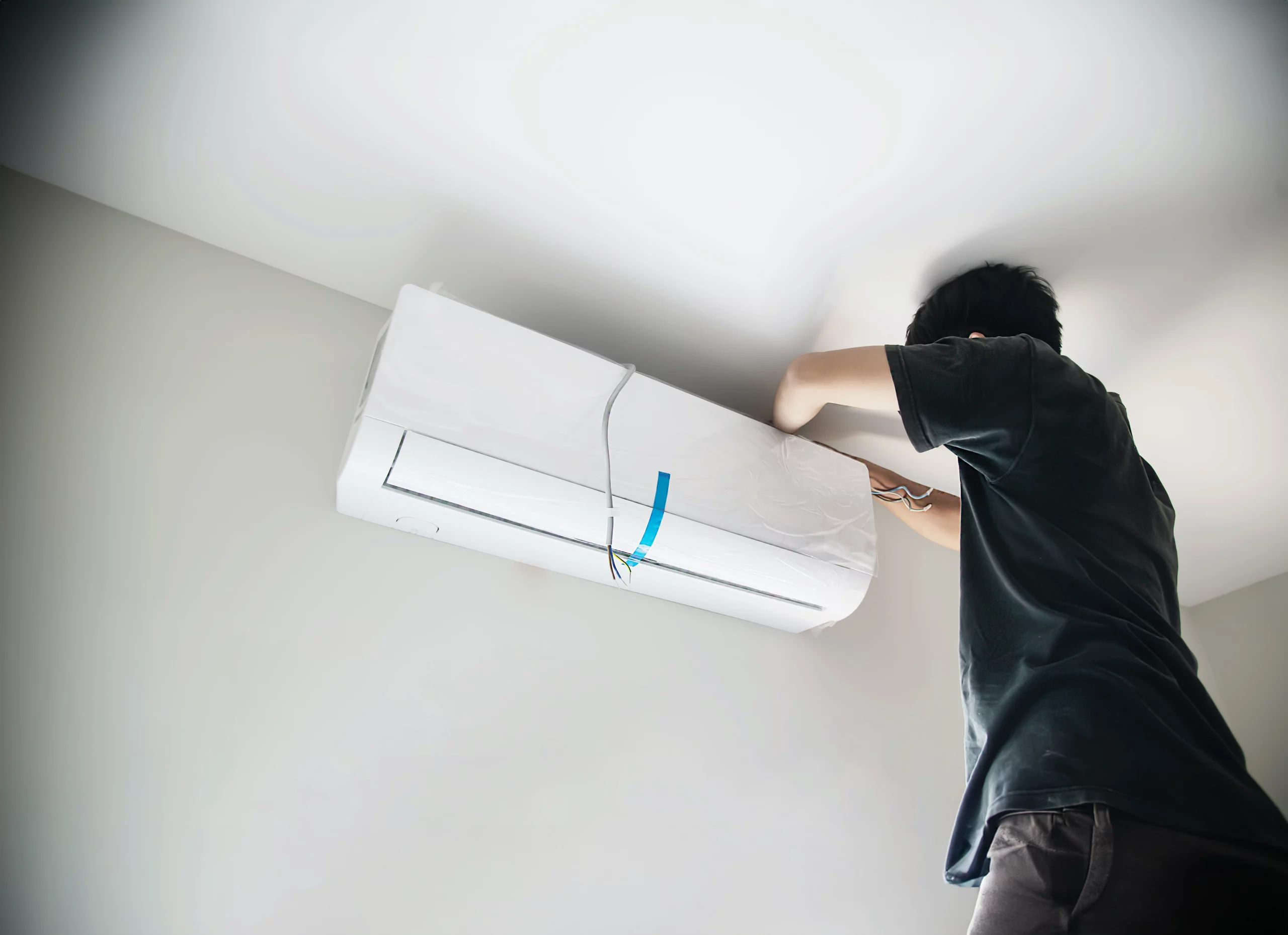At Climatech Air Conditioning, we’re proud of our top-class service. We offer fast and reliable Ventilation services in Sheffield united kingdom at your doorstep. Contact us now for more information about our benefits: fast ventilation services service at your doorstep.


Why choose us?
Because we have the fastest response time in the industry with a proven track record of providing top class service - Ventilation service at an affordable price!

Fast Service
Fast ventilation service at your doorstep. Contact us now top class service - Ventillation services fast and reliable Ventilation services in Sheffield united kingdom
We understand that when your air conditioning stops working properly, you need it fixed immediately. That’s why we offer fast service at your doorstep.








FAQ
In order to make your ventilation system to work properly, you need to keep it clean and in good condition. However, the question is: how often should you have your ventilation system serviced?
You should contact a professional ventilation service if you want to make sure that everything is working as it should. You should also make sure that your ventilation system is regularly tested to ensure that there are no issues.
Regular home ventilation system servicing will increase the performance of your ventilation system. A technician will be able to identify any issues with the system and make necessary adjustments. Improperly installed ducting can cause hot and cold areas in your home. The correct balance of ducting will help you maintain a consistent temperature in all areas of your home, no matter the season.
It is also essential to consider the energy efficiency of your ventilation system. An energy-efficient-efficient home ventilation system will lower the energy costs in your home. It will also save you money in the long run. This type of system is not common, but it does require regular servicing. For example, it’s vital to check the efficiency of the system every three years.
Poor ventilation can lead to several problems, including higher utility bills and uncomfortable conditions. It can also pose a safety hazard. Faulty venting systems can result in overheating, shutdowns, and even fires.
Ventilation system maintenance is an important step in keeping your facilities safe and efficient. Not only is it important to minimize the risk of contamination, but it can also help maximize the use of your facilities. Regular tune-ups and inspections can be performed by a qualified HVAC technician and can help you avoid costly breakdowns.
There are many different types of ventilation systems, and each type has its own unique set of performance standards. These factors make ventilation system maintenance a complex task. A specialist company is able to identify potential issues early and make recommendations to improve the system’s efficiency and performance. These services can also help you meet regulatory compliance requirements and increase the productivity of your business.
Regular ventilation system maintenance includes a regular check-up to determine whether all parts are still in good condition. These inspections double-check the system’s functionality and help to identify any potential problems. They also check for signs of wear or damage that could reduce the efficiency of the system or make it use too much energy. This is especially important as these problems can lead to system failure.
A ventilation service creates airflow inside a building, removing stale air and introducing fresh air to the building. The service can be used in residential buildings, large office buildings, hospitals, vehicles, and marine environments. It helps regulate temperature and humidity, and it helps reduce airborne viruses and other pollutants.
The service can be performed on both mechanical and electrical ventilation systems. It involves performing routine checks and testing to ensure they are working properly. Some of the inspections performed include the lubrication of bearings and fans, testing the motor’s absorbed current, assessing the overloaded pack, and cleaning the intake grille and surrounding area. A technician will also calibrate controls.
Mechanical ventilation services are necessary to keep your building at the right temperature and humidity level. These services are designed to maintain a balanced environment while reducing energy consumption. Mechanical ventilation servicing can be performed on many different types of units, including fans, variable air volume units, and boilers. In some cases, ventilation services also include the servicing of connected installations, such as boilers, chillers, and the building’s energy management system.
You should have your ventilation system serviced at least once a year. This is to double-check its operation and identify any potential problems. An inspection will look for wear and tear that can lead to excessive energy use or damage. If you don’t keep up with the maintenance of your ventilation system, you may end up paying for repairs that could have been avoided.
The air quality in your facility is a major concern when using a ventilation system. If it’s dirty, it can affect the health of your workers and cause operational shutdowns due to contaminants. Regular maintenance, including cleaning and replacing filters, will ensure your ventilation system is working as efficiently and effectively as possible.
Depending on the size of your ventilation system, you may need to replace the air filters once a month. If you don’t have time to do the cleaning, you can hire a professional air duct cleaner. These professionals will inspect your air ducts and check for damage.
There are several different types of ventilation. They can be categorized by their location, process, and how to function. Mechanical ventilation, for example, uses positive pressure to help with indoor air pollution. It is also known as spot ventilation and is an effective way to improve natural ventilation. This type of ventilation involves installing local exhaust fans to remove inside air pollutants and moisture.
The two most common types of ventilation are mechanical and natural. Natural ventilation is based on natural forces and relies on wind, windmills, and windows. However, this type of ventilation can be insufficient in some areas. Natural ventilation is the easiest to implement, but it may not be enough. Mechanical ventilation relies on mechanical fans installed in windows and walls, as well as air ducts.
Mechanical ventilation is the most common type of ventilation. Both natural and mechanical ventilation can improve indoor air quality. Mechanics help remove pollutants from buildings and maintain comfort levels. Mechanical ventilation depends on mechanical devices, which can be expensive.
The ventilation system is a vital part of your HVAC system. This system consists of ducts, a blower assembly, and an air handler. Its purpose is to increase outdoor air circulation and reduce indoor humidity and temperature. This ventilation is essential for your comfort, and a properly working system helps keep your home at a consistent temperature.
The HVAC system is a vital part of large office buildings, residential structures, and medium-sized industrial buildings. It also plays an important role in vehicles, hospitals, and marine environments. This system is responsible for regulating the humidity, temperature, and air quality within buildings. It brings fresh air in through the vents to keep these buildings comfortable.
HVAC systems are divided into two basic types: mechanical and natural. Forced-air systems pass air through filters to remove airborne particulates, volatile organic compounds, and other pollutants. They also help reduce allergens. Some homeowners also add air cleaners, humidifiers, and dehumidifiers to their HVAC systems.
The purpose of a ventilation system is to provide a constant supply of fresh air to an enclosed space. This is important to maintain a healthy environment, as fresh air prevents the growth of mold and bacterial pathogens, and helps combat dust and other airborne particles. Ventilation systems include fans, pumps, and air-flow tunnels. They are normally built into walls of buildings and structures, so users usually don’t see them.
A mechanical ventilation system is one that actively pulls in the fresh air and pushes out the old one. These systems may include exhaust fans and supply fans, or a combination of both. Most of these systems require energy to run. Mechanical ventilation systems are often integrated with heating and cooling equipment.
In addition to improving air quality, a good ventilation system can also improve comfort. A proper ventilation system can also help with safety in the workplace. In the workplace, stale and heavily polluted air can have dangerous effects on a worker’s health.
HRV systems are designed to minimize energy consumption in a house by retaining approximately two-thirds of the heat lost during ventilation. Some manufacturers claim an efficiency level of up to ninety percent. While such high-efficiency models tend to be more expensive, they are becoming more common in North America. In addition to reducing energy costs, HRV systems also require routine maintenance, including cleaning the fan’s filters.
Another benefit of a heat-recovery ventilation system is the ability to purify the air inside your home. These systems normally sit in the attic, removing stale air and replacing it with fresh air. They can also be retrofitted into older properties. However, older houses often do not have the same level of airtightness as newer homes. To properly use an HRV system, it is important to cover all heat loss sources and ensure that the house is airtight.
Another benefit of HRV systems is that they reduce carbon monoxide levels, which can be lethal for short-term exposure. In addition, HRV systems reduce the risk of Legionnaires’ disease, a disease caused by Legionella bacteria. In addition, poor air quality can affect a worker’s mood and productivity. HRVs can improve the quality of indoor air and eliminate many airborne allergens and pollutants.

